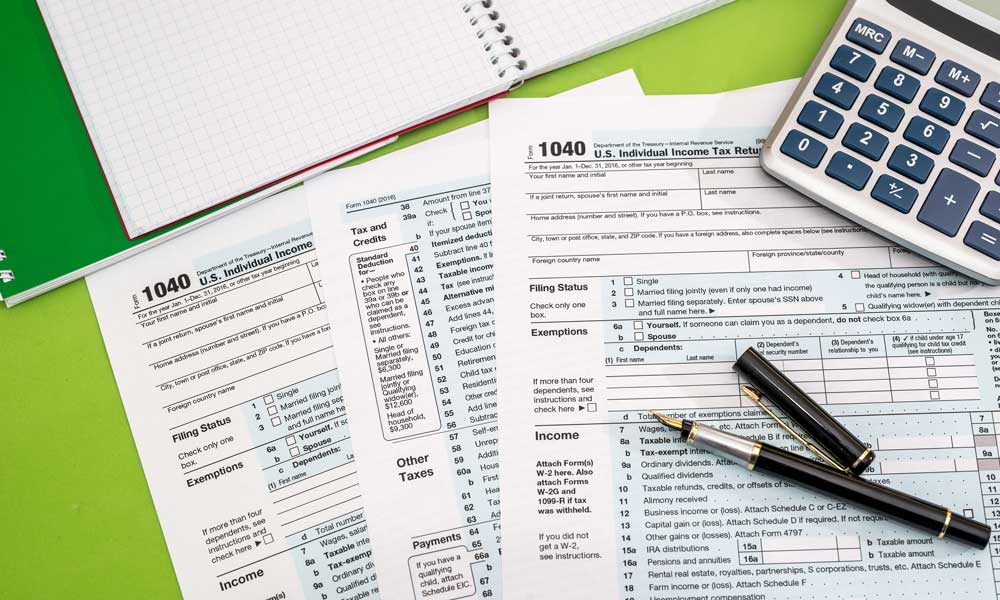Reverse Mortgages and Taxes
Updated:
Retirement Living takes an unbiased approach to our reviews. We may earn money when you click a partner link. Learn More

Borrowers can quickly reap the benefits of a reverse mortgage by tapping into their home equity without having to sell it. This type of loan offers supplemental income when money gets tight or unexpected bills pop up. That said, these loans aren’t technically considered “income,” so it’s worth learning how reverse mortgages can affect your taxes.
We’ll break down the tax implications of reverse mortgages and the deductions available to borrowers.
How Does a Reverse Mortgage Affect Tax Deductions?
Reverse mortgages are essentially the opposite of regular mortgages. The loan proceeds aren’t subject to income tax, but you’ll likely incur other taxes—and later, a few noteworthy deductions. In certain cases, these loans could disqualify you for government benefits.
Reverse Mortgage Interest
You can write off your interest payments each year with a regular mortgage. With a reverse mortgage, however, the IRS doesn’t let you deduct the interest until you repay the loan, which is usually paid in full once you move out of the home or the borrower dies.
According to IRS Publication 936, “Any interest (including original issue discount) accrued on a reverse mortgage isn’t deductible until you actually pay it, which is usually when you pay off the loan in full.”
Note: To deduct reverse mortgage interest, you must itemize it on the Schedule A. But check with your financial advisor before filing—itemized deductions can sometimes exceed the standard deduction limit and affect how much tax you end up paying in any given year.
Property Tax
With a reverse mortgage, you remain responsible for property taxes, insurance, and maintenance. You could default on your loan if you don’t pay these and maintain your property. Because you pay property taxes, you can deduct them from your taxes each year, but you’ll have to itemize your taxes instead of taking the standard deduction (only about 11% of people do this).
Are Reverse Mortgage Payments Taxed as Income?
The IRA considers reverse mortgage payments (the money you get from a reverse mortgage) loan proceeds, not income. Therefore, this money is not taxed because the lenders are essentially returning the equity you built up over the years as you paid your mortgage. You funded the mortgage payments using your income, which has already been taxed.
Social Security, Medicare, and Medicaid Benefits
Reverse mortgage funds won’t affect your Social Security payouts or Medicare benefits because these programs are not needs-based, and reverse mortgages are considered non-income. In fact, many people leverage monthly mortgage payments to boost their monthly incomes and cover their budget. However, these loans could affect your Supplemental Security Income (SSI) and Medicaid.
SSI and Medicaid are means-tested programs—you qualify for a tier based on income and financial situation. Any reverse mortgage proceeds you have in a bank account are considered assets and can disqualify you. Before taking out any loan, make sure your total monthly income and reverse mortgage proceeds do not exceed your state’s limit.
Capital Gains Tax Implications
Some reverse mortgage holders decide to sell their homes for various reasons. In these instances, you’ll need to consider possible capital gains taxes on the sale.
If your home appreciates more than $250,000 (for single filers) or $500,000 (for married filers), you’ll owe capital gains taxes when you or a family member sells your home to pay off the reverse mortgage.
For example, if you bought your home for $350,000 and sold it for $450,000, your profit on the sale is only $100,000, so you won’t owe capital gains taxes.
A capital gains tax exemption applies if the home was your primary residence for at least two of the past five years. Exemptions also apply if you need to move due to health or employment-related reasons.
The Bottom Line
Generally speaking, you can predict how a reverse mortgage will affect your taxes. Consult your financial advisor and the lender to determine the immediate and future tax implications of your specific loan and loan amount. Understanding reverse mortgages and taxes can help you avoid any surprises when it comes time to file.



